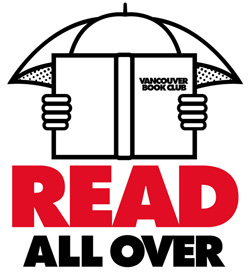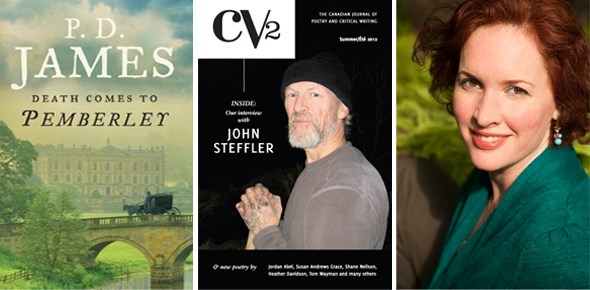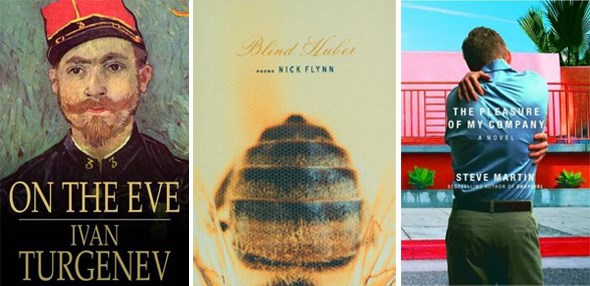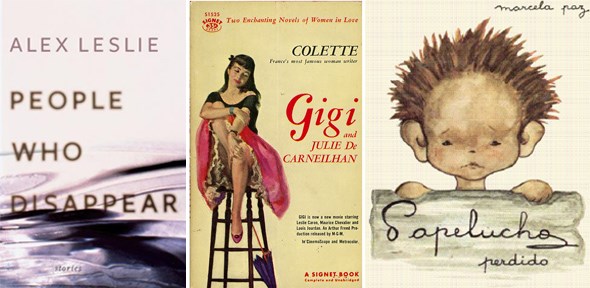 |
Read All Over celebrates the bookworm in all of us, showcasing readers in Vancouver and the books they love most. |
| Elee Kraljii Gardiner directs Thursdays Writing Collective in Vancouver's Downtown Eastside. She is a poet and the editor and publisher of five chapbooks. A frequent collaborator, she leads workshops on creativity and social writing. She is the co-editor of V6A: Writing from Vancouver's Downtown Eastside. |
What are you currently reading? Your thoughts on it?
A friend’s leftover copy of P. D. James' A Death Comes to Pemberley that wouldn't fit in her luggage. It's a continuation of Jane Austen's Pride and Prejudice and a murder mystery. I hate it. But I will soldier on because of a misplaced Puritan work ethic. Today I was reading CV2. I highly recommend poetry journals as getting-stuck-in-line books – they are light, small, bendable and bear repetitious reading.

How do you like your books served up best - audio books, graphic novels, used paperbacks, library loaner, e-reader...?
I've never listened to an audio book only because when I am still for more than five minutes I prefer to read for myself. And on long drives I like conversation. I like books to be a physical artifact I can hold. Reading is a physical act and it feels strange to relate to a book in only conceptual terms on an e-reader. It really irritates me that an individual reader can change the font on a Nook. I am totalitarian in my understanding of what is “book.” That said, we published the third Thursdays Writing Collective chapbook online because we lacked printing funds and that was a great solution. The designer, Five Seventeen, locked down the design so it is UNALTERABLE!
While I like old books and don’t throw mine out, I’m careful about buying second hand or borrowing because of squeamishness about bed bugs and book lice (they nestle in the spine glue.) Also, I like to read in the tub and you can’t/shouldn't do that with borrowed copies.
What books have changed your life?
Roots by Alex Haley. I read that when I was 11 and it was the first time systematic marginalization and injustice were laid out in a way I could understand.
On the Eve by Turgenev. I began reading my older sister’s novels and fell into a Russian literature phase around 12 or 13. I had a predilection for getting lost in a world that I was unfamiliar with.
Nick Flynn's Blind Huber. It changed something in me. He uses the metaphor of a beehive as it applies to the intersection of social justice and literature.
Every book I've read has changed my life in some way, shape or form, even the “bad” ones because I have to figure out why I love them despite their weaknesses (horse mysteries by Dick Francis). Or else I have to think about why that Important Canonical Work, supposed to be so electric, leaves me flat (Little Women, Catcher in the Rye).

The one book you always recommend is...
I love Steve Martin's book The Pleasure of My Company: a perfect soupçon of literary and comedic craft with an unreliable narrator so well executed he accesses the neurotic in each of us. Also, it's a love story. Or a love yourself story.
Do you have a favourite story set in Vancouver?
People Who Disappear by Alex Leslie.
Where is your favourite place to crack open a book in Vancouver?
In bed, during the day.
What book or story impressed you as a child? Were you obsessed with any particular ones?
Are You My Mother? by Dr Seuss.
Julie of the Wolves by Jean Craighead George.
Jim Carrol's Basketball Diaries.
I read a lot of Colette during one summer as a tween. It felt exotic yet familiar because the setting was French but the concerns were frivolously teenager.
My children are reading the actual physical copies of my childhood books so I feel as if I haven't left them behind. The Little Brute Family by Russell Hoban is one that continues to please.

What is the most cherished item in your library?
A set of children's books by Marcela Paz, an author I read in Chile to improve my Spanish. They're for ages 6-12 and are from 1947. "Papelucho" is the picaresque main character.
I love the books written by people I know, especially when they are signed with a memory of where we were together.
I have a special shelf for books my kids have written. We take photos and they write stories to go with them and then we laminate the pages. They have also used old books to wordsquat in them by redesigning/editing/rewriting/drawing on the pages. Those are a typographic record of their growth.
If you had to choose, which writer would you consider a mentor?
John Asfour (my co-editor for V6A: Writing from Vancouver's Downtown Eastside) has suffered through constant questions, insistences and attempts with my own poetry. Carolyn Forché is another person with a deep effect on my concept of “why poetry?” She is a precise and efficient editor and extremely compassionate.
Your life story is published tomorrow. What's the title?
"Multiple Choice"


